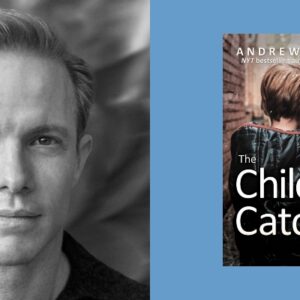During my training as a clinical psychologist, I grew to understand that we humans are always affected by our history. Our families shape our stories with their presence or absence, their quirks and patterns, their healthy traits and unhealthy, and sometimes their serious trauma. We carry our family forward, consciously or not, and it shapes our present whether we recognize it or we don’t. Personal history is also the stuff that makes crime fiction so fascinating. Some writers pay more attention to the effects of psychological backstory than others, and it takes a bigger role in some sub-genres than others. Sometimes the psychological backstories of the characters are known from the beginning, and sometimes those experiences are unspooled alongside the criminal investigation, or even over a series of books.
Take Michael Connelly’s Harry Bosch, who spent his youth in foster care and youth homes because his father was absent and his mother, a prostitute. Would he have been the champion of the downtrodden if his mother hadn’t been murdered and left in an alley when he was eleven? Her murder was never solved as he grew up, and that loss always shadowed him. His family trauma drove him to become a detective who sought justice, particularly for people on the margins. “Everybody counts, or nobody counts” is his motto.
Sally Wainwright’s British police sergeant character Catherine Cawood in the Edgar-winning television show Happy Valley is powerfully shaped by her divorce, estrangement from her son, her sister’s heroin addiction, and most of all, her teenage daughter’s rape and suicide. Her strength and power and quest for justice are fed by the sorrow and grief in her own life. Though we never learn what her own childhood trauma might have been, we can imagine growing up might not have been idyllic. The pain in her life makes her brave and prickly and determined to bring bad guys to face what they deserve.
Ann Cleeves’s Vera Stanhope had a difficult relationship with her reclusive father, one that continued to haunt her after his death. As Cleeves herself has said, Vera grew up without a mother, raised by a father grieving for the woman he adored and resenting the burden of a child, especially a daughter. Socially isolated during her youth, Vera becomes a close observer of human behavior, and a deeply empathetic detective devoted to pursuing justice. Matthew Venn, Cleeves’s detective in the Two River series was raised in a strict, evangelical Brethren community. When he breaks from that religious group (perhaps because he recognizes his sexual orientation will never be acceptable?), he is also cut off from his family and larger community. He feels isolated and rejected, and these feelings feed into his intense need to find the perpetrators of violence in his work as a detective.
Liz Houghton, Rhys Bowen’s protagonist in her newest standalone, The Rose Arbor, is the only child of older parents who isolated, coddled and overprotected her. As a result, she feels unsure of herself, dependent on them, and prone to stay close to home and family. But as the book begins, Liz has grown restless, wanting to push away from the love that has begun to feel smothering. When a small child goes missing in London and her policewoman flat mate is assigned to the case, Liz sees the opportunity to escape from what feels like a dead-end life writing obituaries at her newspaper. She wants to seize the chance to make her mark. When Liz and her roommate and another police officer search for clues in a village abandoned during World War II, she doesn’t suspect that the secrets they find might unravel everything she knows about her own life. A lot more was driving her quest for understanding what happened in this village than she ever realized.
Mysteries on the cozier side of the spectrum are less prone to explore their characters’ backstories and dark sides. But when it happens, the stories are richer and more believable. For Goldy Schulz in Diane Mott Davidson’s culinary mystery series, her escape from an abusive marriage informs her independence, empathy, and dedication to solving crimes for the downtrodden. Yes, she spends her time cooking rather than doing police work, but the drive underneath is the same—bring the bad guys to justice so that others don’t suffer the way she did.
I bequeathed Rebecca Butterman, my psychologist character in the advice column mysteries, a difficult family history including abandonment, suicide, and estrangement from her father. This tragic history propels her to become a therapist, and later, to get involved in solving mysteries even though she’s not in law enforcement. Her next-door neighbor’s apparent suicide reverberates with a tragedy in her own past, propelling her to answer the dead woman’s mother’s plea to find out what really happened.
Hayley Snow, Key West food critic, has divorced parents and a mother who lacks self-confidence as the series begins. This colors Hayley’s feelings about tackling a new community, a new job, and a treacherous boyfriend. By the 14th installment, A Poisonous Palate, Hayley has become successful in her career as food critic and has married a Key West police detective. In spite of her contentment, she will always remember what it felt like to be accused of a crime she didn’t commit. When a woman contacts her asking for help with a cold case disappearance, Hayley learns that toxic love—the book topic this woman who enlists her help is writing—might very well describe their past lives as well. As a fan wrote me recently, “this wasn’t a typical Hayley Snow on Key West book because it went deeper into issues dealing with how the lack of emotional love one experiences as a child can affect them as adults—unless the cycle of abuse is broken.”
Each of these characters’ careers is shaped by personal experiences and traumas that influenced their motivations, investigative styles, and relationships with others. A detective character with an imperfect family may show deep empathy and intuition, and feel a powerful drive for truth, justice, and closure—and that makes for great reading.
***

















